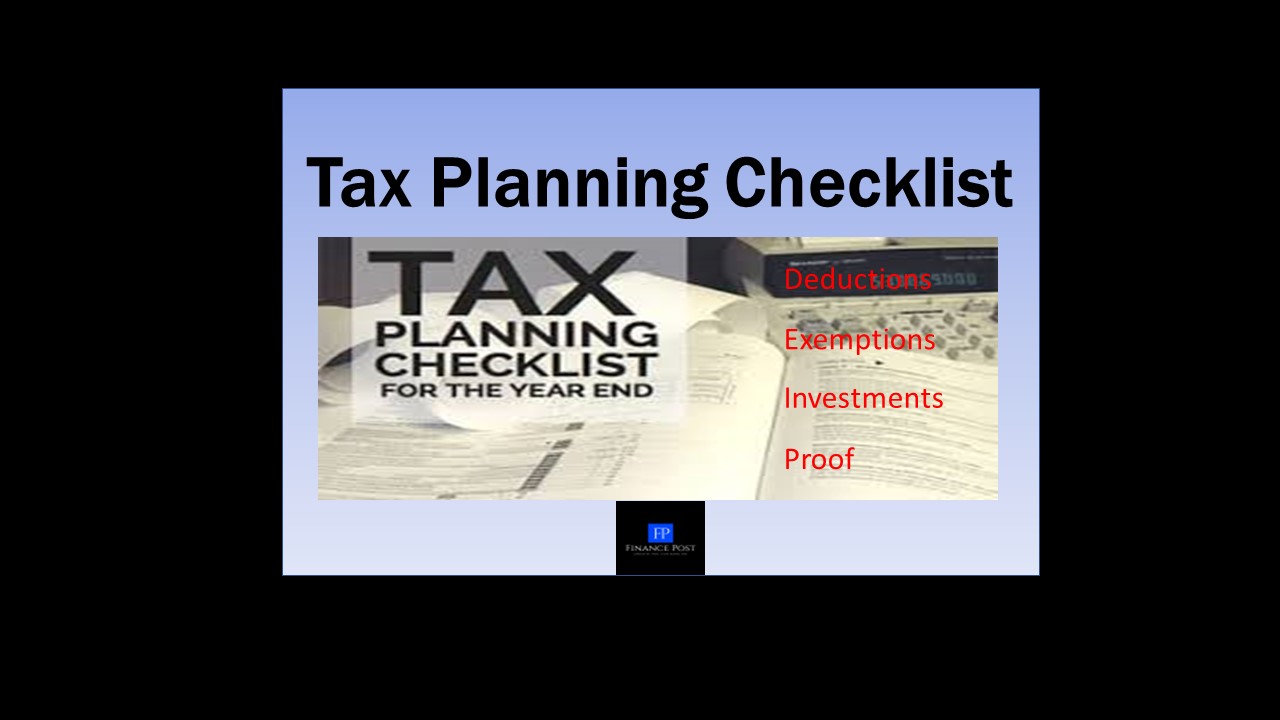
Last updated on July 24th, 2022 at 07:36 pm
Exemptions from Capital Gain Tax
As the Financial Year 2018-19 is halfway through, you should start doing your tax planning for the year. If you are thinking of selling a few assets but are worried about the capital gain tax on it; then go through various provisions of The Income Tax Act listed below. You can certainly save or avoid Capital Gain Tax.
Long Term Capital Gain (LTCG) on the sale of listed equity shares and mutual funds
From April 1, 2008; Long-Term Capital Gains on equity shares and equity oriented mutual funds are taxed at 10%. However, there is an exemption of Rs. 1,00,000/-. That means LTCG on equity shares or mutual funds up to Rs 1 lacs will not be taxed.
The amendment further states that to compute the LTCG one can use the market price of shares as on 31 Jan 2018. That means one can take advantage of the market volatility and conduct buy/ sell activities to book profit but avoid taxes.
For Example
- You hold a share of XYZ Ltd. bought at cost of Rs 10/- You are holding it for more than 2 years and the market price of the shares as on 31 Jan 18 is Rs 100/- If the market price today is Rs 150/-, you will get taxed only on Rs. 50/- and not Rs. 140/- (Rs.150 – Rs.10). Further, if the total LTCG is less than Rs 1 lacs you will not get taxed.
- If the market price of the shares today is Rs 100 you will not get taxed.
- If the market price of the shares today is Rs 90 you might think of selling and then buying the shares so that you will book the Long-Term Capital Loss, which can get offset against other gains if any.
LTCG on sale of Residential House Property
If you are planning to sell your residential property and you are liable to pay income tax on capital gains arising on sale of the old house, then Section 54 of The Income Tax Act gives relief from LTCG arising on sale. As per section 54, if the taxpayer invests the sales proceeds within a specified period, the capital gains are exempt to the extent of investment.
Following conditions are to be met to avail this exemption:
- The benefit is available only to an individual or HUF.
- The benefit is available on Residential property held Long Term.
- Within a period of one year before or two years after the date of sale of an old house, the taxpayer should acquire another residential house or
- The taxpayer should construct a residential house within a period of three years from the date of sale of the old house.
- The new residential property purchased/constructed should be in India.
- If you are unable to invest the amount in the manner mentioned above; then before the date of filing tax return or 1 year from the date of sale, whichever is earlier, deposit the specified amount in the specified Capital Gains Accounts in public sector bank (or other banks) as per the Capital Gains Account Scheme, 1988.
One must remember that
- The exemption available is the amount of capital gains or the amount invested whichever is less. And
- This exemption will reverse if you sell this new property within 3 years of purchase.
In interim budget 2019, the interim Finance Minister declared that From FY 2019-20, this benefit u/s 54 can be availed for the purchase or construction of two residential properties. However
- The exemption can be availed only once in a lifetime and
- This exemption is available only for Long term Capital Gain up to Rs.2crores.
Exemption under section 54EE
Section 54EE of the Income-tax Act allows exemption from Capital gain arises from the transfer of a long-term capital asset on investment in certain specified Bonds. Other conditions to be met to avail this exemption are similar to those of Sec 54 EC.
Exemption under section 54F on LTCG from other than Residential property
In case you have LTCG arising from an asset other than a Residential property, you will get an exemption or relief from tax thereon by investing the amounts in another Residential Property. This gives relief to many home buyers who with the dream to by a house, sale other capital assets available with them.
The following conditions are to be met to claim this exemption
- The benefit is available only to an individual or HUF.
- The benefit is available on the transfer of any Long Term Capital Asset other than Residential property.
- The assessee does not own more than one residential house on the date of transfer.
- Within a period of one year before or two years after the date of sale of the asset, the taxpayer should acquire another residential house or
- The taxpayer should construct a residential house within a period of three years from the date of sale of the asset.
- The new residential property purchased/constructed should be in India.
- If you are unable to invest the amount in the manner mentioned above; then before the date of filing tax return or 1 year from the date of sale, whichever is earlier, deposit the specified amount in the specified Capital Gains Accounts in public sector bank (or other banks) as per the Capital Gains Account Scheme, 1988.
- This exemption will reverse if you sell this new property within 3 years of purchase.
The amount of exemption u/s 54F is as follows:
- If 100% of net sale proceeds are invested in the residential property; then 100% of capital gains are exempt.
- If part of the net sales consideration is invested, the exemption shall be allowed proportionately. The exempted amount would be calculated according to the following formula. The exemption can’t be more than the capital gain.
Exemption = Capital Gain X Amount Invested / Net Sale Consideration
Exemption from Capital Gain arising from the sale of residential property on investment in a start-up company (Section 54 GB)
As per the provisions of section 54GB of the Act, capital gain arising from sale of a residential property including a plot of land is not chargeable to tax if the net consideration is utilized for subscription in the equity share of a company engaged in the business of manufacture of any article or thing or a business carried out by an eligible start-up engaged in innovation, development or improvement of products or processes or services or scalable business model with a high potential of employment generation or wealth creation. The only condition is that the assessee has more than 50% share capital or more than 50% voting rights in such company and equity shares of the company or the new assets acquired by the company are not sold or otherwise transferred within a period of 5 years from the date of its acquisition. The period available for the transfer of property was 31st March 2019.
The Finance (No.2) Bill, 2019 has proposed to extend this period for transfer of residential property up to 31st March 2021. Further, the condition on holding a minimum of 50% of the share capital or voting right in the new company is being relaxed to a minimum of 25% of the share capital or voting rights.
The condition of restriction on transfer of new asset acquired by such company out of the proceeds of capital gain invested as share capital is proposed to be reduced from 5 years to 3 years in respect of new asset being computer or computer software.
LTCG on Agricultural land
Similar exemptions are available on Capital Gains arising from the sale of Agricultural land u/s 54B, provided the gain on sale of agricultural land is a location within the specified area and is chargeable to tax.
Related Posts
- How to do a transaction in Digital Rupee (CBDC-R)? – A Step by step Guide - 10/12/2022
- Can you rectify your 26AS? - 20/09/2022
- Tax implications on Cashback - 09/09/2022
Disclaimer: The above content is for general info purpose only and does not constitute professional advice. The author/ website will not be liable for any inaccurate / incomplete information and any reliance you place on the content is strictly at your risk.
Follow us on Social Media by clicking below
Follow @financepost_in
Be the first to comment